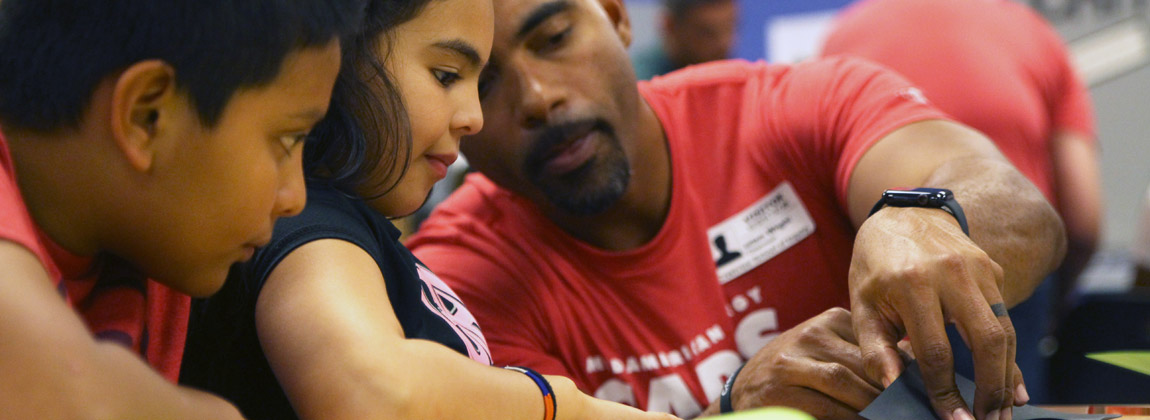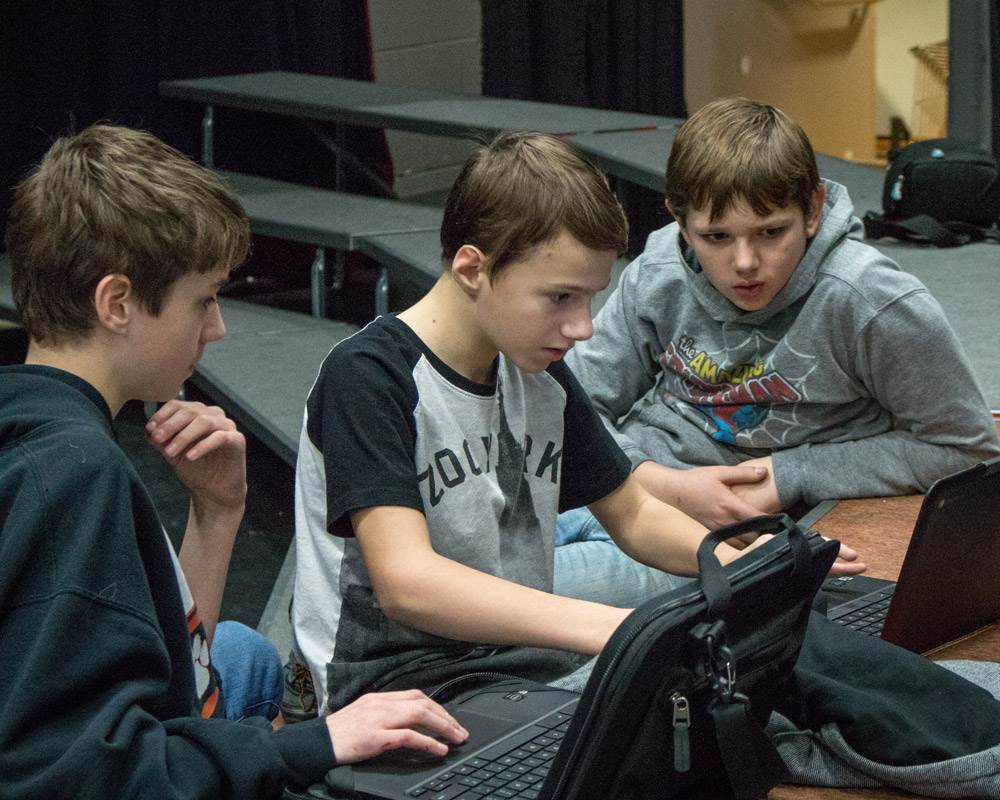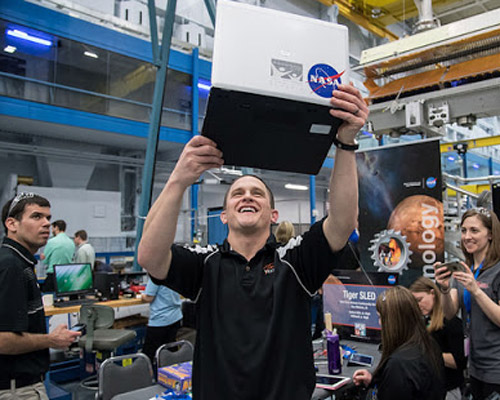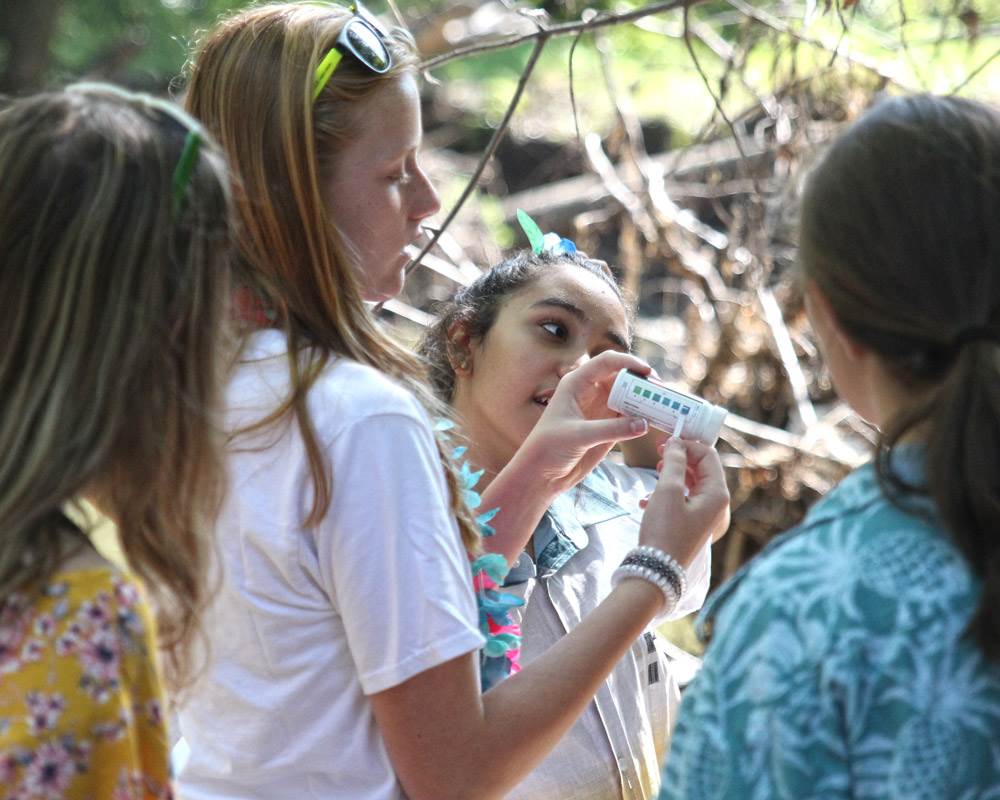Engaging Students with Authentic Work

A few years ago, West Des Moines Community Schools (WDMCS) started its journey toward offering a project-based learning (PBL) pathway option for our K-12 students. That journey began by collecting and analyzing data, focusing on a district conducted vision survey students completed over multiple years. We found that as students progressed through our system, their level of engagement decreased. Our Superintendency looked for ways to directly address this issue. We also started conversations with our business and community leaders, who shared a workforce need for independent thinkers with a growth mindset about themselves, others and those who are able to work collaboratively and solve problems.
 Introducing the PBL Pathway
Introducing the PBL Pathway
We needed authentic opportunities for our learners so that we could continue our focus on the normal course and grade-level standards, but also add specific teaching and feedback centered around collaboration, communication and student agency. It became apparent that a PBL approach would help meet these goals. Superintendency soon identified New Tech Network (NTN) as the partner organization we could use to support our ability to usher in these exciting changes. NTN provides professional development opportunities, coaching support and a proven PBL framework. Exploratory groups from the district — parents, business and community leaders, teachers, board members and district and building administrators — visited several NTN schools around the country. In spring and summer 2015, teachers and administrators received intensive training with NTN, helping us prepare to launch the Project-Based Learning Network pathway for the 2015-16 school year at WDMCS. The pathway was first introduced at two of our K-6 buildings, Crestview School of Inquiry and Clive Learning Academy. Both Indian Hills and Stilwell junior highs started with seventh-grade teams in the pathway. Currently, we have added courses in the pathway to the next grade level each year, providing K-12 learners with the Project-Based Learning Network option.
PBL Progress
 PBL implementation is a journey, not an event. It takes a cultural shift and a team approach at all levels to make it work. We created an environment which made it safe for teachers, administrators and students to take risks in their teaching and learning. With tapered support from NTN, our staff committed to ongoing professional learning that focuses on collaboration, problem solving, creativity and student learning outcomes. We looked to shift from teacher-centered to student-centered learning environments focused on authentic problems and engagement in addition to traditional curriculum standards.
PBL implementation is a journey, not an event. It takes a cultural shift and a team approach at all levels to make it work. We created an environment which made it safe for teachers, administrators and students to take risks in their teaching and learning. With tapered support from NTN, our staff committed to ongoing professional learning that focuses on collaboration, problem solving, creativity and student learning outcomes. We looked to shift from teacher-centered to student-centered learning environments focused on authentic problems and engagement in addition to traditional curriculum standards.
We invested in technology. Students in the Project-Based Learning Network pathway have one-on-one access to devices, specifically Chromebooks starting in third-grade. We discovered rather quickly that students are no longer limited to the technology knowledge base of their teachers and are now functioning in a beta state, because we are no longer able to keep up with the array of authentic 21st-century learning and the technology available to assist in that learning. Teachers have learned to jump in and embrace the “beta” while creating a framework of learning and focus. Our entire district has since gone one-on-one with student Chromebooks, so it is no longer limited to just Project-Based Learning Network students. This technology has supported a transformational shift in education where the teacher no longer needs to be the sole purveyor of knowledge.
A key component to PBL that we had initially underestimated is the importance of collaboration skills. As we spoke with more business partners and analyzed our own group work, we soon learned that we needed to teach and model this skill set. Students are routinely evaluated as individuals, but many of the authentic problems and projects they work on are executed in small groups.  As we look at a student’s contribution to the group, we honed in on the key collaboration skills they need to experience success for that particular project. It is much more manageable for students to get better at one thing in particular rather than trying to focus on multiple collaboration goals and seeing minimal improvement. Over the course of a school year, students have demonstrated multiple descriptors of what it means to be a good collaborator.
As we look at a student’s contribution to the group, we honed in on the key collaboration skills they need to experience success for that particular project. It is much more manageable for students to get better at one thing in particular rather than trying to focus on multiple collaboration goals and seeing minimal improvement. Over the course of a school year, students have demonstrated multiple descriptors of what it means to be a good collaborator.
Engaging with the Community
Our pathway is always looking for authentic ways to engage our students. This is where our business and community partners have supported in so many ways. Our goal is to show students how the standards in the classes at school play out in real life. We’ve had elementary students team with local nonprofits and work through all aspects of adopting, training and funding a therapy dog for the school. Our junior high students have hosted public art shows and teamed with real NASA astronauts to build anti-gravity rover prototypes. High school students have partnered with Polk County Conservation on multiple occasions with a few of their projects, and have worked with the West Des Moines Leadership Academy to host a Socratic seminar on modern topics with adults and youth. We would love to continue to build our relationships in Greater Des Moines (DSM), and create projects and courses that are beneficial to our students, but also help and support our partners.
It has been neat to see students who have been in the pathway for 4-plus years as well as students joining the pathway this school year work together to create real solutions. The collaborative groups and authentic project work help each student grow. They know that these are 21st-century skillsets that are necessary for success in postsecondary life — no matter the career, school or military path they choose. This pathway can help learners find their talents, and working in groups helps them find a way to make that successful. Students are tasked with discovering the answers to a problem or situation themselves, instead of being told what works. The WDMCS commitment to authentic project-based learning has enabled engagement to look different in our schools. We are excited to see where this journey will take us as we continue to elevate the Project-Based Learning Network pathway.
The employees, citizens, and leaders of tomorrow are in our classrooms today! Is your company or non-profit interested in partnering with West Des Moines Community Schools? We would love to have a conversation about the different ways to engage! Please visit wdmcs.org.
Justin Miller
Justin W. Miller is thought partner and business liaison for the Project-Based Learning Network at WDMCS.